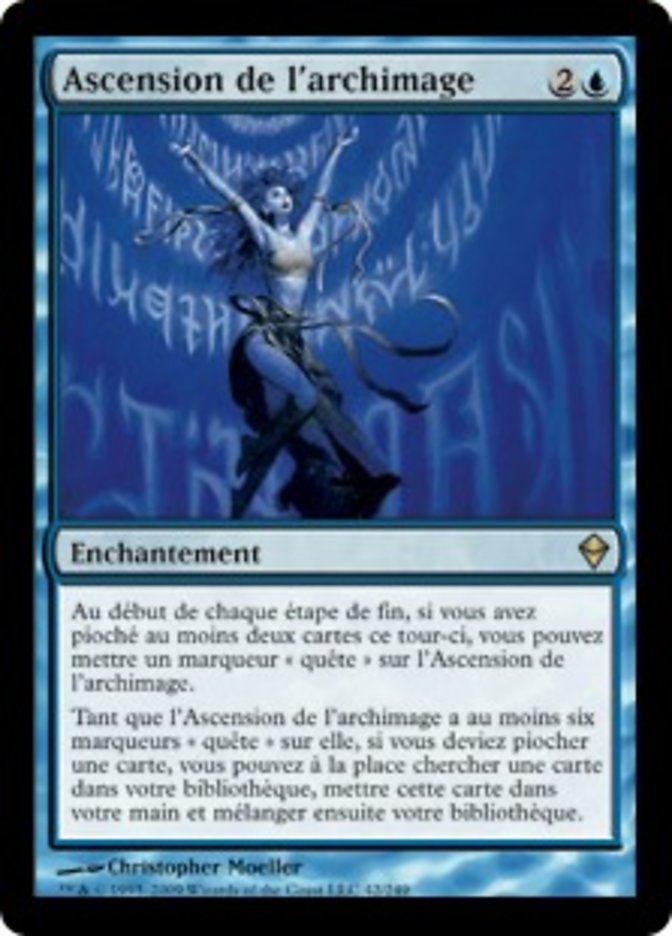
Ascension de l'archimage {2}{U}
Enchantement
Au début de chaque étape de fin, si vous avez pioché au moins deux cartes ce tour-ci, vous pouvez mettre un marqueur « quête » sur l'Ascension de l'archimage.
Tant que l'Ascension de l'archimage a au moins six marqueurs « quête » sur elle, si vous deviez piocher une carte, vous pouvez à la place chercher une carte dans votre bibliothèque, mettre cette carte dans votre main et mélanger ensuite votre bibliothèque.
Illustrated by Christopher Moeller
- Standard
- Not Legal
- Alchemy
- Not Legal
- Pioneer
- Not Legal
- Explorer
- Not Legal
- Modern
- Legal
- Historic
- Not Legal
- Legacy
- Legal
- Brawl
- Not Legal
- Vintage
- Legal
- Timeless
- Not Legal
- Commander
- Legal
- Pauper
- Not Legal
- Oathbreaker
- Legal
- Penny
- Legal
Toolbox
Buy This Card
Notes and Rules Information for Ascension de l'archimage:
- Only the English version of a Magic card receives Oracle updates and errata. View this card in English. (Scryfall note)
- Archmage Ascension’s first ability has an “intervening ‘if’ clause.” It won’t trigger at all unless you’ve already drawn two or more cards by the time the end step begins. (2009-10-01)
- If an effect would cause you to draw multiple cards while Archmage Ascension has six or more quest counters on it, each individual draw may be replaced by Archmage Ascension’s effect. Process the draws one at a time. Even if you use the reasonable shortcut of finding all of the cards at once and only physically shuffling once, the game will consider you to have searched and shuffled once per card. (2009-10-01)
- If a spell or ability causes you to put cards in your hand without specifically using the word “draw,” Archmage Ascension’s abilities ignore it. (2009-10-01)
- If two or more replacement effects would apply to a card-drawing event, the player who’s drawing the card chooses what order to apply them. It’s possible that after applying one of them, the others will no longer be applicable because the player would no longer draw a card. For example, if you control more than one Archmage Ascension with six quest counters on it and you would draw a card, each Archmage Ascension’s replacement effect could apply. Once you use one, the rest are no longer applicable. (2009-10-01)